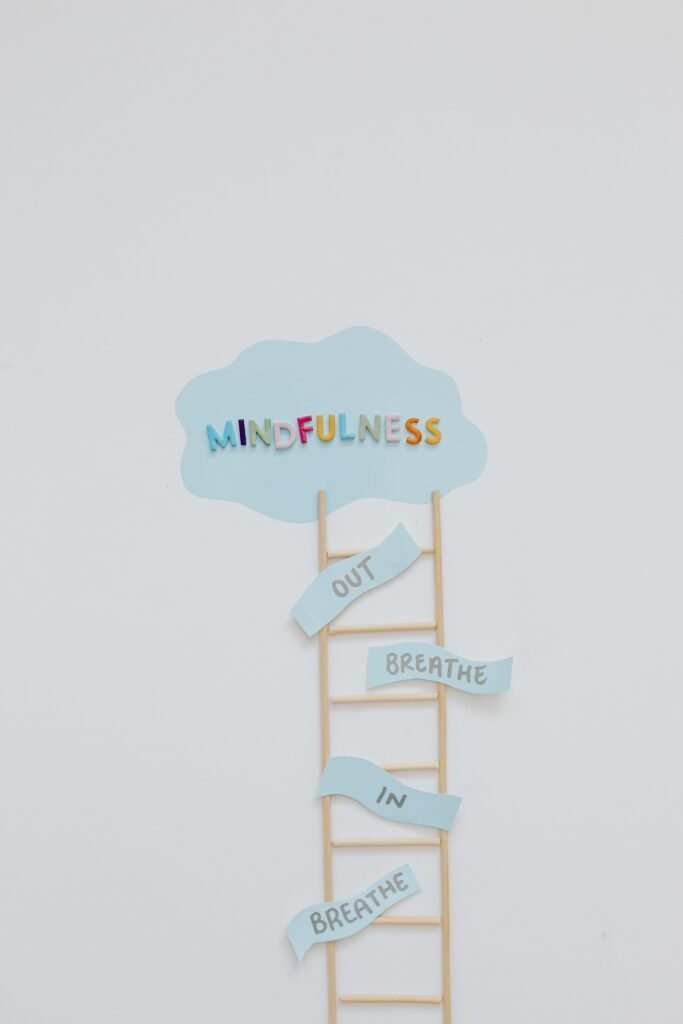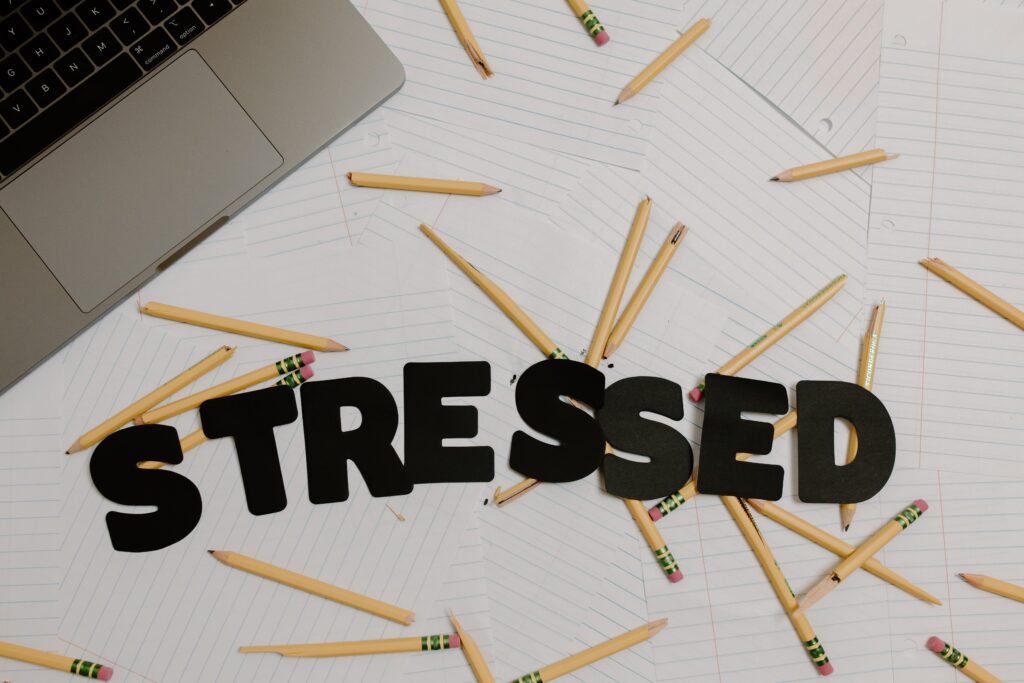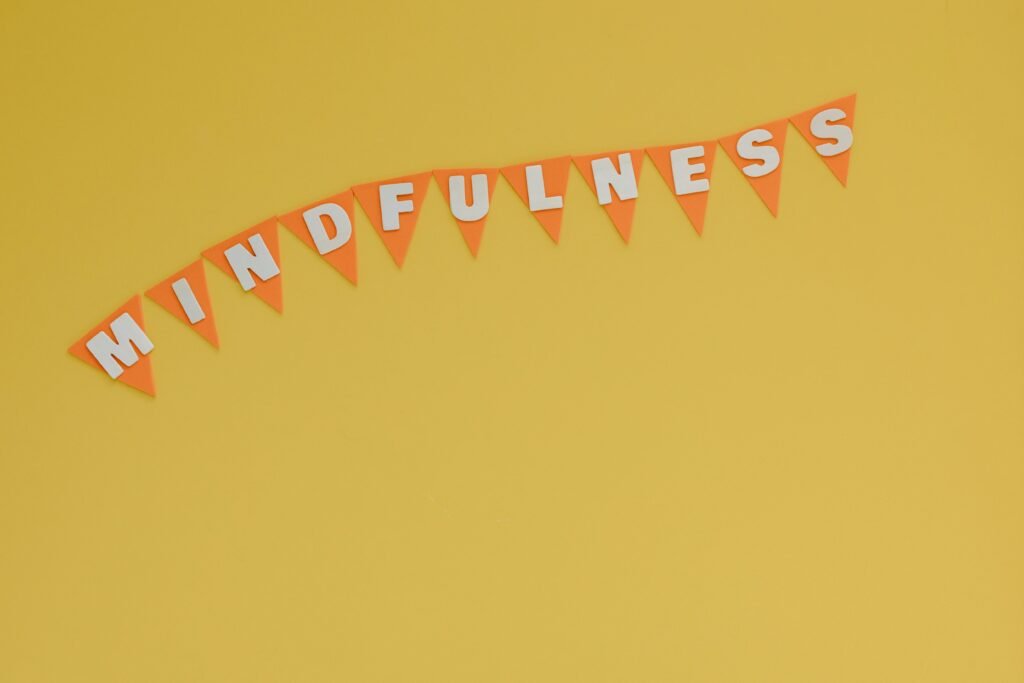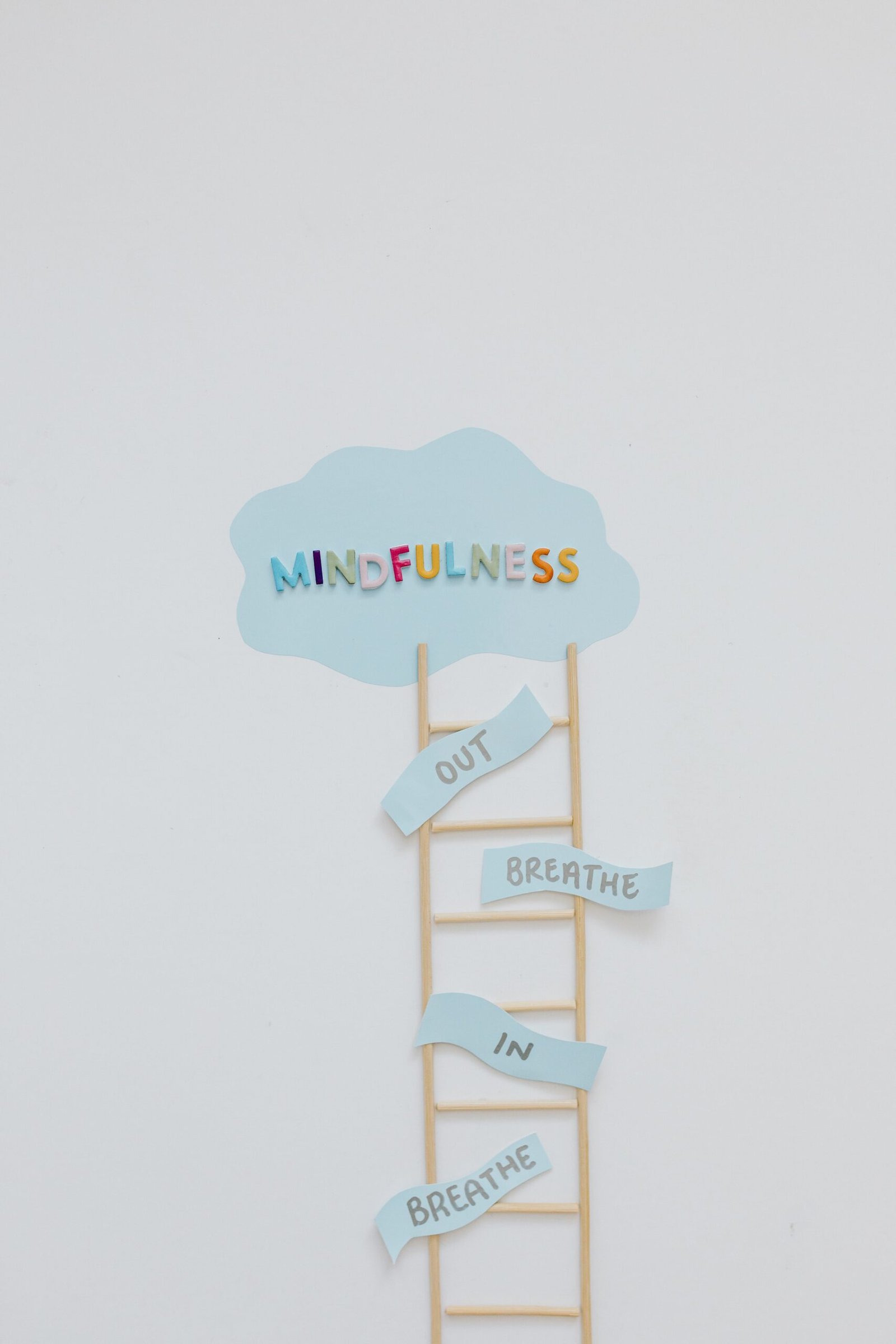In this article, we will explore the fascinating connection between stress and energy levels, and discover effective strategies to manage it. We all know that stress can drain our energy and leave us feeling exhausted, but have you ever wondered why? As we delve into this topic, you will gain valuable insights into the impact of stress on your energy levels and learn practical tips to reclaim your vitality. So get ready to uncover the secrets of managing stress and maintaining your energy throughout the day!

Understanding Stress and Energy Levels
The Definition of Stress
Stress is a natural response to any demand or pressure placed upon an individual. It is a feeling of emotional or physical tension resulting from adverse or demanding circumstances. Stress can be triggered by various factors such as work, relationships, financial concerns, or health issues. While a certain level of stress can be beneficial and motivating, chronic or excessive stress can have detrimental effects on energy levels and overall well-being.
The Relationship Between Stress and Energy Levels
There is a strong relationship between stress and energy levels. When stress levels are high, it can significantly impact an individual’s energy reserves. Stress activates the body’s “fight-or-flight” response, releasing stress hormones such as cortisol and adrenaline. These hormones can lead to increased heart rate, elevated blood pressure, and heightened mental alertness. However, over time, chronic stress can exhaust the body’s resources, depleting energy levels and leaving individuals feeling fatigued and drained.
The Impact of Chronic Stress on Energy
Chronic stress, if left unmanaged, can have profound effects on energy levels. Prolonged exposure to stress hormones can disrupt the body’s natural energy production processes. It can interfere with sleep patterns, affect appetite and digestion, and cause muscle tension and pain. Moreover, chronic stress can lead to psychological issues such as anxiety, depression, and lack of motivation, further exacerbating energy depletion. Recognizing the physical and psychological manifestations of stress on energy is crucial in finding effective strategies for managing and replenishing energy levels.
Physical Manifestations of Stress on Energy Levels
Fatigue and Exhaustion
One of the most common physical manifestations of stress on energy levels is fatigue and exhaustion. Chronic stress can lead to a constant feeling of tiredness, even after a full night’s sleep. The body’s resources become depleted due to the ongoing release of stress hormones, leaving individuals feeling drained of energy and lacking vitality. Fatigue can impair cognitive function, decrease productivity, and negatively impact overall well-being.
Insomnia and Sleep Disruptions
Stress can significantly disrupt sleep patterns, leading to insomnia and sleep disruptions. An overactive mind, racing thoughts, and constant worries can make it difficult to fall asleep or stay asleep throughout the night. Sleep deprivation caused by stress can result in decreased energy levels, reduced concentration, and impaired cognitive performance. Establishing healthy sleep habits and practicing relaxation techniques can be effective in managing stress-induced sleep disturbances.
Changes in Appetite and Digestion
Stress can also affect appetite and digestion, leading to changes in eating patterns and potential energy imbalances. Some individuals may experience an increase in appetite, leading to emotional eating or unhealthy food choices. Conversely, others may lose their appetite and skip meals, depriving their bodies of essential nutrients. Digestive issues such as indigestion, stomachaches, or irritable bowel syndrome can also be triggered by chronic stress, further impacting energy levels.
Muscle Tension and Pain
Muscle tension and pain are common physical manifestations of stress on energy levels. Chronic stress can cause muscle stiffness, knots, or general discomfort due to increased muscle tension. This can lead to reduced mobility, restricted movement, and discomfort throughout the body. The physical discomfort caused by stress can further drain energy levels, making it challenging to engage in regular physical activity or daily tasks.
Psychological Effects of Stress on Energy Levels
Anxiety and Restlessness
Stress has a profound impact on mental well-being, often resulting in anxiety and restlessness. The constant worrying and apprehension associated with stress can lead to a state of heightened alertness, making it difficult to relax or find inner calm. Anxiety can drain mental energy, leaving individuals feeling mentally drained and fatigued. It can also impact sleep quality, amplify physical sensations of stress, and contribute to a cycle of depleted energy.
Depression and Lack of Motivation
Chronic stress can contribute to the development of depression and a lack of motivation. Ongoing stress can disrupt the brain’s chemistry, leading to feelings of sadness, hopelessness, and a general lack of interest in activities once enjoyed. Depression can drain individuals of energy, making it challenging to engage in daily tasks or find the motivation to pursue goals. Addressing stress and implementing self-care strategies are essential in managing and improving energy levels affected by depression.
Difficulty Concentrating and Memory Issues
Stress can have a significant impact on cognitive function, leading to difficulties in concentration and memory. Increased cortisol levels associated with chronic stress can impair memory formation and retrieval, affecting information processing and recall. Additionally, stress-induced anxiety and restlessness can make it challenging to maintain focus and concentrate on tasks at hand. The resulting mental fatigue and reduced cognitive performance can further deplete energy levels.
Effects of Stress on Lifestyle and Productivity
Decreased Productivity and Performance
Chronic stress can significantly decrease productivity and hinder performance in various areas of life. The mental and physical exhaustion caused by stress can make it difficult to concentrate, meet deadlines, and complete tasks efficiently. Reduced productivity not only impacts work performance but can also affect personal relationships, quality of life, and overall well-being.
Impacts on Relationships
Stress can take a toll on interpersonal relationships as well. When individuals are constantly stressed, they may become irritable, less patient, and may withdraw from social interactions. This can strain relationships and lead to feelings of isolation and loneliness. Additionally, ongoing stress can make it challenging to effectively communicate and resolve conflicts, further impacting the energy required to nurture and maintain healthy relationships.
Negative Coping Mechanisms
Stress can also lead to the development of negative coping mechanisms that drain energy levels. Some individuals may turn to unhealthy habits such as excessive alcohol consumption, smoking, or overeating as a means of temporarily alleviating stress. However, these coping strategies can lead to further physical and psychological imbalances, ultimately depleting energy reserves and exacerbating the negative effects of stress. Implementing healthy coping mechanisms is vital in managing stress and maintaining optimal energy levels.

Strategies for Managing Stress and Boosting Energy
Implementing Stress-Relief Techniques
Incorporating stress-relief techniques into one’s daily routine is crucial in managing stress and boosting energy levels. Techniques such as deep breathing exercises, progressive muscle relaxation, and mindfulness meditation can help calm the mind, reduce anxiety, and promote a sense of relaxation. Taking regular breaks, engaging in hobbies or activities that bring joy, and practicing self-care are all effective ways to alleviate stress and restore energy.
Engaging in Regular Exercise
Regular exercise is a powerful tool in managing stress and boosting energy levels. Physical activity increases the production of endorphins, which are the body’s natural mood-elevating chemicals. Exercise can help reduce stress, enhance sleep quality, improve overall health, and increase energy levels. Finding activities that are enjoyable and incorporating them into a daily routine can provide significant benefits for managing stress and maintaining optimal energy.
Getting Sufficient Sleep
Prioritizing sufficient sleep is essential for managing stress and replenishing energy levels. Establishing a consistent sleep schedule, creating a relaxing bedtime routine, and ensuring a comfortable sleep environment can contribute to improved sleep quality. Adequate sleep allows the body to restore and recharge, promoting physical and mental well-being. Lack of sleep can exacerbate the effects of stress, decrease productivity, and impair overall energy levels.
Eating a Balanced Diet
Maintaining a balanced and nutritious diet is crucial for managing stress and supporting optimal energy levels. Stress can lead to cravings for unhealthy foods high in sugar, salt, and fat. However, these foods can contribute to energy crashes and further deplete energy reserves. Opting for a well-rounded diet rich in fruits, vegetables, whole grains, lean proteins, and healthy fats can provide essential nutrients and sustainable energy. Avoiding excessive caffeine and alcohol consumption is also important, as they can disrupt sleep patterns and exacerbate the effects of stress.
Practicing Mindfulness and Meditation
Mindfulness and meditation practices can help manage stress and boost energy by promoting present-moment awareness and reducing the impact of stressors. By focusing on the present moment, individuals can reduce rumination, let go of worries, and find clarity and calm. Engaging in regular mindfulness exercises or guided meditation can help individuals build resilience to stress and cultivate a sense of inner peace, ultimately replenishing energy levels.
Time Management and Prioritization
Effective time management and prioritization are essential for managing stress and maximizing energy levels. Prioritizing tasks, setting realistic goals, and breaking larger tasks into smaller, manageable steps can reduce feelings of overwhelm and increase productivity. Creating a schedule or using productivity tools can help individuals allocate time for both work and self-care activities, ensuring a healthy balance and preventing energy depletion.
Seeking Support and Professional Help
Importance of a Supportive Network
Building and maintaining a supportive network of family, friends, or colleagues is crucial in managing stress and promoting overall well-being. Having people who can listen, offer guidance, and provide emotional support can alleviate stress and provide a sense of security. Sharing concerns, seeking advice, and connecting with others can help individuals better manage stress and maintain optimal energy levels.
Therapeutic Interventions
For individuals facing chronic stress and struggling to manage their energy levels, therapeutic interventions can offer valuable support. Seeking therapy, counseling, or attending support groups can help individuals develop healthy coping strategies, address underlying issues related to stress, and enhance overall emotional well-being. Therapists and counselors can provide guidance, tools, and techniques to manage stress and improve energy management skills.
Consulting a Healthcare Professional
In some cases, chronic stress may require medical intervention. Consulting a healthcare professional can help individuals assess their overall health and determine the most appropriate course of action. Healthcare professionals can offer insights into lifestyle modifications, prescribe medication if necessary, and provide guidance on managing stress-related health conditions. Seeking professional help is a proactive step towards effectively managing stress and optimizing energy levels.

Creating a Healthy Work-Life Balance
Identifying Work-Life Imbalance
Creating a healthy work-life balance is essential for managing stress and maintaining optimal energy levels. Identifying signs of work-life imbalance is the first step in making necessary changes. Common indicators include consistently working long hours, neglecting personal relationships, feeling overwhelmed or burned out, and lacking time for self-care activities. Recognizing these signs allows individuals to take action and implement strategies to achieve a better balance.
Setting Boundaries and Prioritizing Self-Care
Setting clear boundaries between work and personal life is essential for maintaining a healthy work-life balance. Establishing designated work hours, limiting overtime, and avoiding work-related tasks during personal time are effective ways to create boundaries. Prioritizing self-care activities such as exercise, hobbies, relaxation, and spending time with loved ones is essential for replenishing energy levels and reducing stress. By valuing personal well-being, individuals can effectively manage stress and maintain optimal energy.
Utilizing Time-Off and Vacation
Using allotted time-off and vacation days is crucial for maintaining a healthy work-life balance and managing stress. Taking breaks from work allows individuals to recharge, relax, and engage in activities unrelated to work. Whether it’s a short vacation, a long weekend, or a personal day, time away from work can provide valuable opportunities to rest, rejuvenate, and replenish energy levels. By utilizing time-off and vacation, individuals can better manage stress and achieve a healthier work-life balance.
Cognitive Behavioral Techniques for Stress Management
Identifying and Challenging Negative Thought Patterns
Cognitive behavioral techniques are effective tools for managing stress and improving energy levels. Identifying and challenging negative thought patterns is a key element of cognitive-behavioral therapy. By becoming aware of negative self-talk or distorted thinking patterns, individuals can reframe their thoughts, challenge irrational beliefs, and develop a more positive and realistic mindset. Engaging in positive affirmations, journaling, or seeking therapy can help individuals manage stress and increase energy levels.
Developing Healthy Coping Strategies
Developing healthy coping strategies is essential for managing stress and preventing energy depletion. Effective coping mechanisms can vary from person to person but may include engaging in hobbies, engaging in relaxation techniques, seeking support, or practicing self-care activities. Identifying healthy coping strategies that provide stress relief and replenish energy is an ongoing process of self-discovery. Experimenting with different techniques and finding what works best for each individual is crucial in effectively managing stress and boosting energy.
Building Resilience and Emotional Intelligence
Building resilience and emotional intelligence is a long-term approach to stress management and energy optimization. Resilience allows individuals to bounce back from adversity and challenges, adapting and thriving despite life’s stressors. Emotional intelligence enables individuals to understand, manage, and express their emotions effectively. By developing these skills, individuals can reduce the impact of stress, improve emotional well-being, and ultimately increase energy levels. Practices such as self-reflection, self-care, and learning effective communication skills are vital in building resilience and emotional intelligence.
The Role of Relaxation Techniques in Energy Management
Deep Breathing Exercises
Deep breathing exercises are simple yet powerful relaxation techniques that can help manage stress and replenish energy levels. Taking slow, deep breaths in through the nose, holding briefly, and exhaling through the mouth can activate the body’s relaxation response. Deep breathing promotes a sense of calm, decreases heart rate, lowers blood pressure, and reduces muscle tension. Incorporating deep breathing exercises into a daily routine or using them during stressful situations can provide immediate relief and restore energy levels.
Progressive Muscle Relaxation
Progressive muscle relaxation is a technique that involves systematically tensing and relaxing muscle groups throughout the body. The process of consciously tensing and then releasing muscles helps release tension, promote relaxation, and alleviate stress. By practicing progressive muscle relaxation, individuals can become more aware of areas of muscle tension, actively release stress-related tension, and restore their energy levels. It can be particularly beneficial before bedtime to promote relaxation and improve sleep quality.
Yoga and Tai Chi
Yoga and Tai Chi are ancient practices that combine fluid, gentle movements with mindfulness and deep breathing techniques. Both practices promote relaxation, increase flexibility and strength, and foster mind-body connection. Regular participation in yoga or Tai Chi classes can help manage stress, improve energy levels, enhance overall well-being, and provide individuals with valuable tools for relaxation and stress management. Incorporating these practices into a weekly routine can contribute to long-term energy optimization.
Final Thoughts and Conclusion
Understanding the relationship between stress and energy levels is essential for managing stress effectively. Chronic stress can have significant physical and psychological manifestations, depleting energy reserves and hindering overall well-being. By implementing strategies for managing stress, individuals can optimize their energy levels and lead a more balanced and fulfilling life. Through stress-relief techniques, regular exercise, sufficient sleep, a balanced diet, and the practice of mindfulness, individuals can restore and replenish their energy. Seeking support from a supportive network or healthcare professional, creating a healthy work-life balance, and utilizing cognitive-behavioral techniques and relaxation techniques are additional tools for managing stress and boosting energy. By actively managing stress and prioritizing energy management, individuals can lead healthier, more productive lives.

